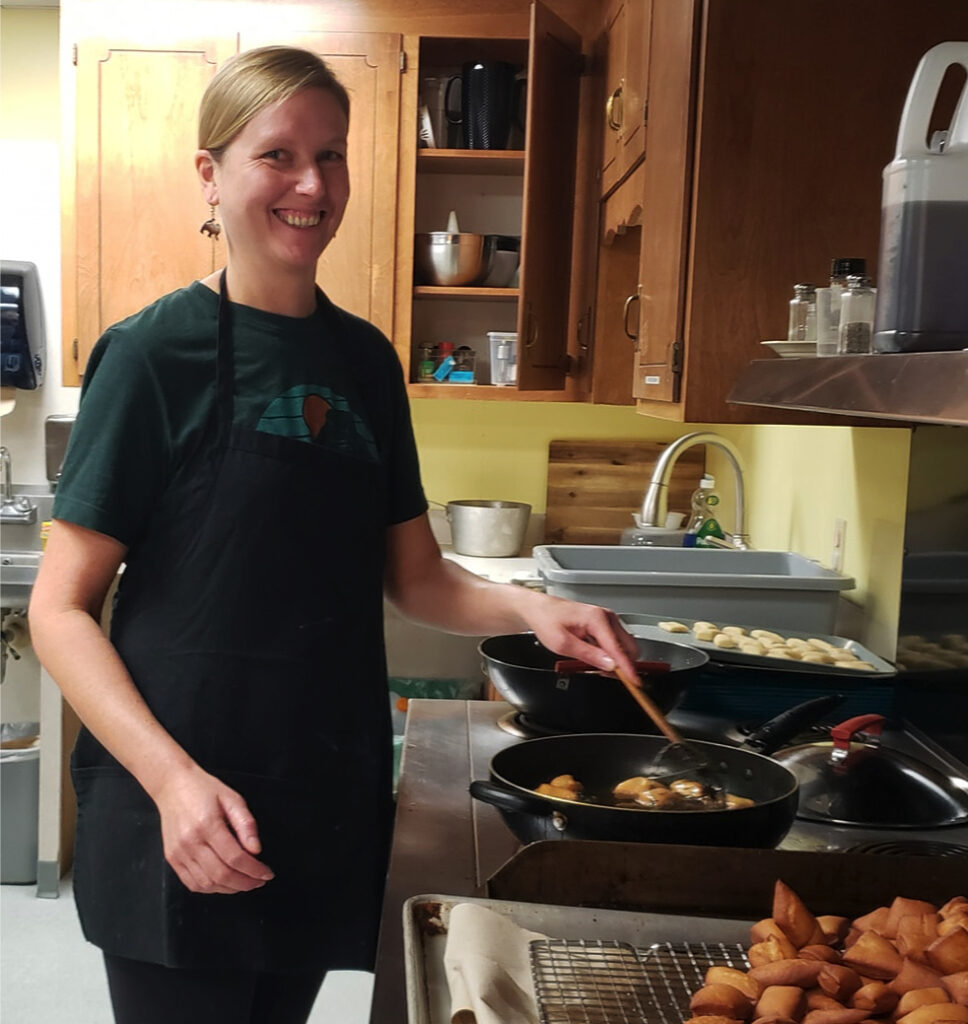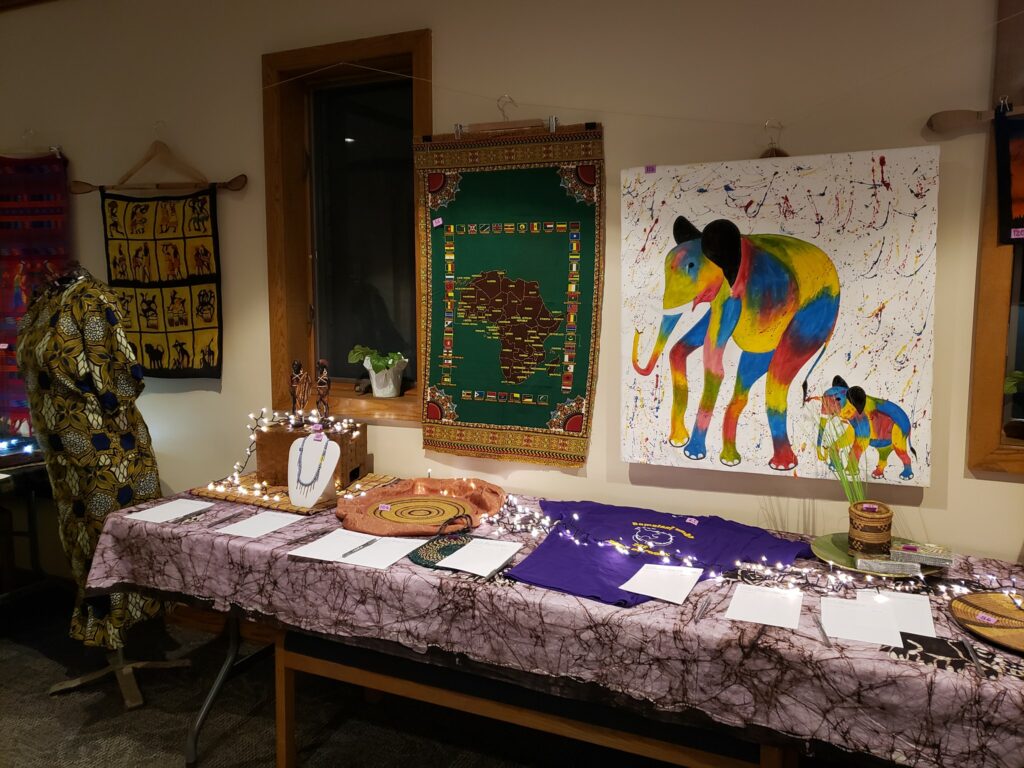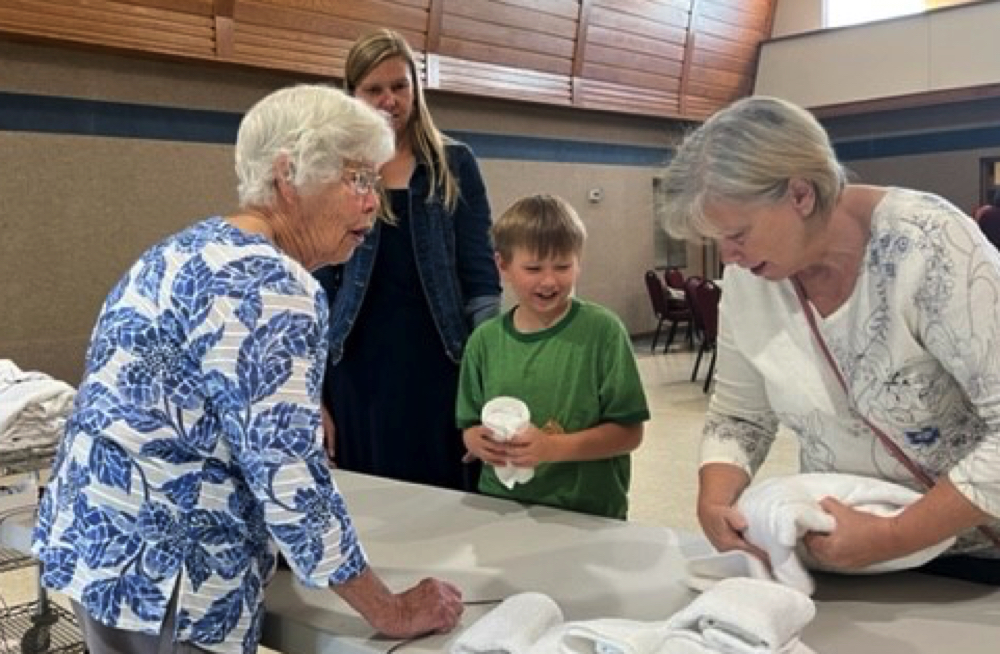It may seem as if a sense of community is an inherent and assumed part of being part of a church congregation. But in the years after COVID lockdowns kept us at home and physically apart, connections are even more important for some.

For Lea Thornton, parent and congregation council member, church community in a post-lockdown world has taken several shapes, from the Tanzanian fundraising dinner, to Women on Wednesdays, to informal meet ups with other parents.
“COVID just made us all realize how much we miss that interaction, even if we’re not very social people,” Thornton said. “Now we’re having the opportunity to connect with people and it’s huge. It’s just nice.”
Like many things, the church’s commitment to supporting a congregation in Tanzania had to adapt to fit the constraints of the pandemic. But now, the partnership is back and stronger than ever, Thornton said.
“Prince of Peace has done a really nice job of staying connected to the congregations there,” Thornton said. “Almost every other year there was a group traveling over there. COVID obviously made a mess of that. But it also gave us the opportunity to figure out different ways to stay connected.”
Every few months leaders from the parishes in Bomalang’ombe and Vikongwa travel to the city of Iringa in order to have a stronger internet connection. Then people from Prince of Peace have the opportunity to video chat with them — something that wasn’t common before the pandemic.
“It’s nice that technology, in the midst of everything else going on, allowed for that partnership to continue in a different way and I think be stronger as a result,” Thornton said.

This year also saw the return of an in-person Tanzanian dinner & auction, supported by members across the congregation, including teenagers making samosas and children helping with the traditional hand washing stations.
The congregation’s renewed commitment to the church is evident in the return of classic events like the dinner, but also in how the congregation is finding new ways to connect. For example, this year is the inaugural run of a group called Women on Wednesdays, which Thornton is participating in. It is sort of an addition or alternative to the traditional prayer circles, Thornton said.
“I’m excited to do it. It wasn’t really something that was on my radar — my mother-in-law is a member of the church too and she and a couple of her friends decided to start it,” Thornton said. “It is a way of getting back to just socializing and being in community.”
The group members spend part of the meetings socializing and then part discussing books they chose at the start. The group Thornton is in is reading “Religion Around the World” is co-written by Sonja Hagander who grew up at Prince of Peace, giving the book a tie closer to home.
“It’s kind of going through that book and just talking about differences and similarities in world religions, to some extent our own personal experience of religion,” Thornton said. “Also because it’s a children’s book, how do you talk about this with your kids? My kids really liked the book. I brought it home and they were going through it the first day.”
Not all connections fostered by the community at Prince of Peace are quite as planned out, some start organically Thornton said.
“Some of my friends — parents, moms — from church started a text thread saying, ‘hey, we’re all dealing with our kids at home during COVID and going crazy’ and so we’re just sort of chatted,” Thornton said.
Eventually the group started meeting up every so often to connect and discuss life’s happenings.
“Just being part of that group, which honestly just has some sort of loose affiliation of us being Prince of Peace members, has been really nice,” Thornton said.
Prince of Peace was not alone in the challenges it has faced in the last few years, and Thornton said she is thankful for the continued dedication of the community and church leaders to the church’s missions.
“I just think it makes our lives richer to have that community, to have that network of people and also for it to be tied to our faith and tied to just kind of that broader sense of, ‘here’s our place in the world and a huge part of that is helping everybody get to a better place in the world,’” Thornton said.

She appreciates the church’s commitment to serving beyond its walls, whether that be working with the city of Roseville to learn more about homelessness in the area, the partnership with Tanzania or partnering with Settled, the NGO that provided the tiny homes now on the church’s property.
“Much of Prince of Peace’s message is that we are a part of this broader world,” Thornton said. “I think it’s really important for my kids to have that and to have that perspective of like, ‘yeah, there are people in the world who may not look like you, may not have the resources you have. People in the world that are going to be better off than you are to some extent, and we can all coexist. We can all do things to help each other and not tear each other down.’”
Through the challenges facing the world in recent years, Prince of Peace has remained strong, Thornton said, and she is excited for the future.
“I feel hopeful again about Prince of Peace, which isn’t necessarily something that I felt in 2020 and 2021, to be honest,” Thornton said. “We’ve had some families express dissatisfaction with children and family ministry and to see that turn around so quickly and so well, … it just feels great.”
This story was compiled and written by Marta Hill, a journalism student at Northeastern University and Pastor Melanie’s daughter.

